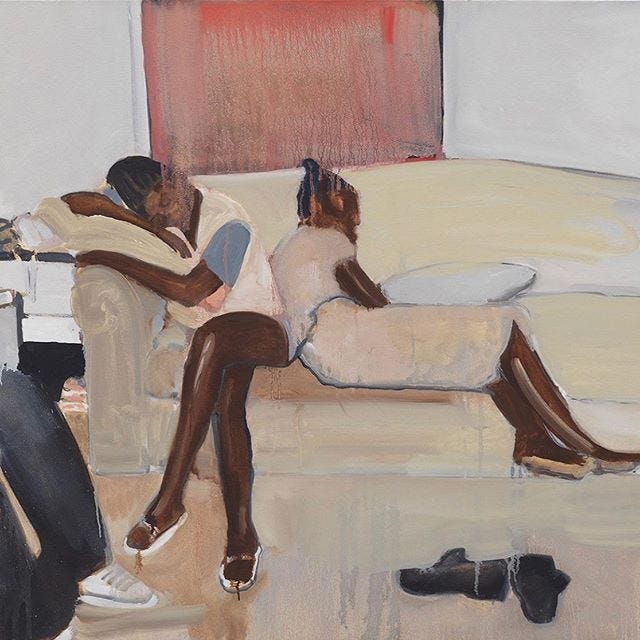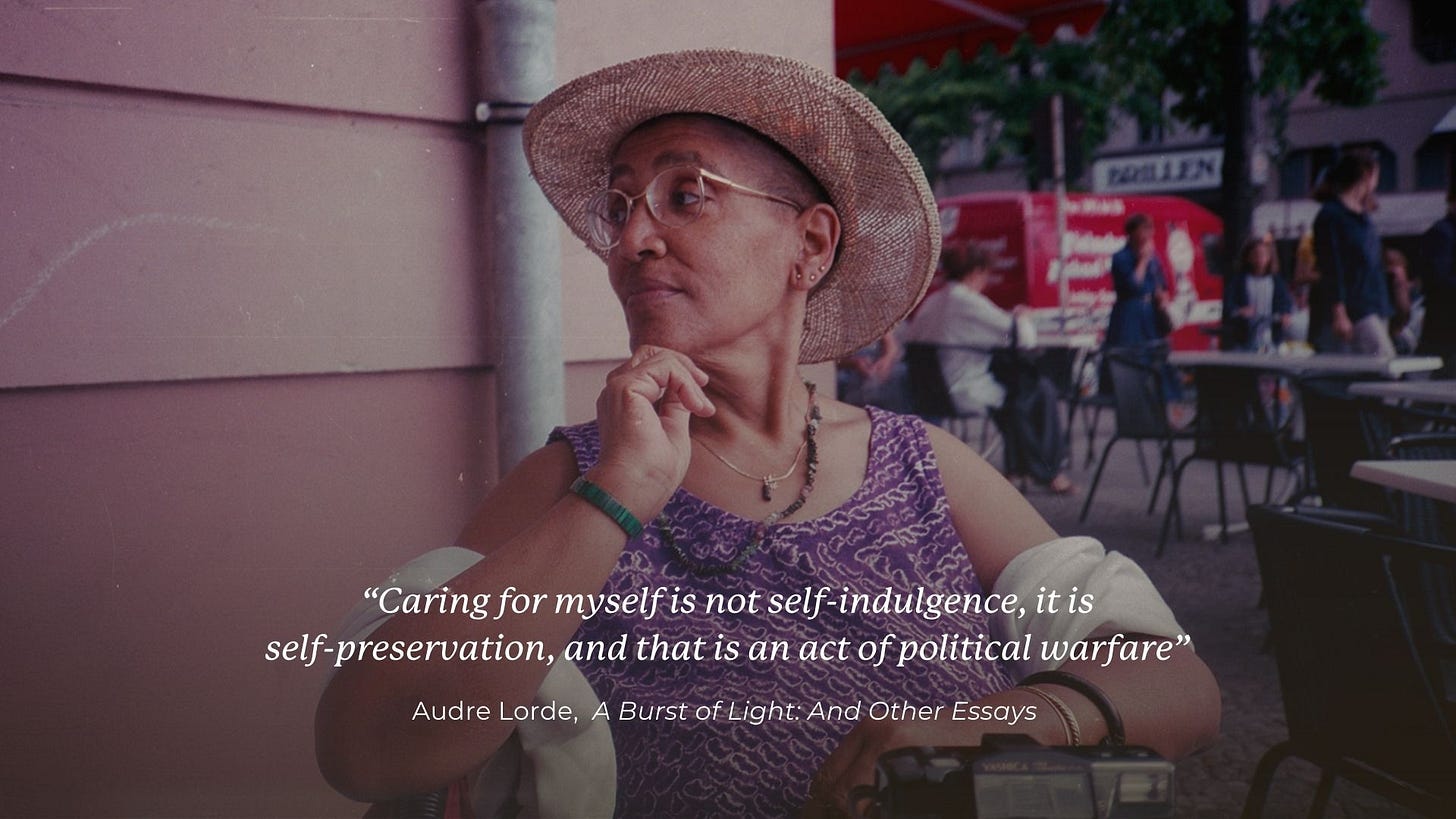How many of us can say we have time to care for ourselves? Better yet — how many of us were taught or encouraged to learn how to care for ourselves?
A question I’m reflecting on these days is: What would life look like if rest, embodiment, and meaningful self-care was a part of a realistic sustainable routine? How would I feel? What would change the most?
Self-care needs to be accessible, realistic, sustainable and supportive to your needs. It is also a generational wound. I’ve written about my experience of busyness, seeking unapologetic joy, reflected on important questions that keep me grounded and explored the ways we can access relaxation, trust myself and give myself grace even when things feel like they are falling apart. All things I consider part and parcel of caring for myself, learning about myself and building a sense of inner wisdom.
Despite all of that, self care and thoughtfulness around what it means to care for myself is still a question I return to.
An important note/disclaimer: Balancing self care and community care is incredibly important, and cannot be separated from understanding yourself and your needs. Knowing what truly matters to you (your values) as well as what you think about them (your beliefs) is a core part of this balancing act. We need both.
In The Cancer Journals (also in the collected essays A Burst of Light), Audre Lorde writes:
This quote cannot be understood without the context in which she wrote it. Recently diagnosed with breast cancer and reflecting on her transforming relationship with her body-mind, it becomes clear to Lorde that her commitment to caring for herself in thoughtful, accessible ways is necessary for her survival.
Accessing self care outside of “indulgence” or commodified and capitalistic conventions is a disability justice issue and a radical act. It is purposeful choice toward creative and realistic means of showing up for yourself, even if it doesn’t always feel good.
Care is political. It is radical. It is embedded in our understanding of ourselves and our generational learning (and unlearning) of what that care should and does look like.
In the article Reclaiming The Radical Politics of Self-Care: A Crip of Color Critique, the authors Jina B. Kim and Sami Schalk describe radical self care as:
“Physical and mental, thoughtful, purposeful, necessary, political and resistant to normative, capitalist approaches to time which stand in opposition to wellness for marginalized people.”
To be well, we must care. And care thoughtfully and purposefully, considering the ways in which care is not always easy to come by in an uncaring and disconnected world. For Black women and women of color specifically, it bucks against stereotypes of “resilience” and “toughness.” It pushes back against the expectations of being caregivers instead of care receivers. We deserve that balance.
As we commemorate the birthdays of both Audre Lorde and Toni Morrison today, during Black History month, and on the heels of Valentine’s Day— this is what I’m thinking about.
A few of my own creative, realistic and accessible forms of self-care:
Learning to rest before exhaustion.
Being choosy about who you vent to.
Pausing to think before reacting.
Setting boundaries even if it will disappoint others.
Nurturing your hobbies and creative pursuits.
Being curious instead of assuming the worst.
Practicing self-compassion and empathy.
Asking for help.
Nourishing your body regularly.
Celebrating your successes and strengths.
Reflection prompts for you:
What does realistic self care mean to you?
If you’re on a journey of building care systems that meet you where you are, what are you noticing?
How do your values inform the ways you care for yourself?
What generational unlearning are you experiencing as you practice care?
As always, take what you need from this and leave the rest. I’m continuing to enjoy the process of learning without judgment. I hope you can find some of this grace too.
Until next time,
Meg
Feelings, Healing is supported by you, the readers. This newsletter is a place for writing words that support sensitivity, self-exploration and curiosity for inner growth and wisdom. If you enjoyed this post and others, please share, subscribe or leave a comment 🤎




Thank you for this, Meghan. I found your question about what self care would look like brilliant, because for those of us who didn’t have these practices modelled we can draw a blank. Interestingly, I saw my mother at the weekend who had trodden in a piece of glass without realising and wanted me to look at something ‘bothering’ her on her foot. I told her ‘just a minute’, as I was finishing the washing up. Her response, ‘oh, no need. I’m probably just being pathetic’ perfectly mirrors the biggest obstacle I’ve had to overcome, which is, I’m not worth it, and in asking for help that means I’m weak.